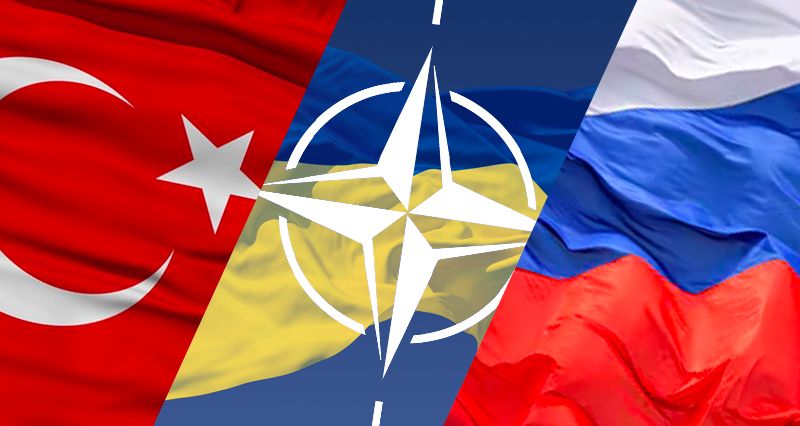President Recep Tayyip Erdoğan’s statement “Ukraine undoubtedly deserves NATO membership” after hosting his Ukrainian counterpart Vladimir Zelenski in Istanbul is being discussed in the world public.
In the context of Türkiye’s relations with Russia and the Western camp, everyone attributes a different meaning to Erdoğan’s statements: “Rapprochement with the West”, “break with Russia”, “balance policy”, etc..
Based on concrete facts, we can put forward the following propositions about Erdoğan’s statement and his foreign policy tendencies:
- The appointment of Hakan Fidan as foreign minister and Mehmet Şimşek as treasury and finance minister in the new cabinet were the first signs that the West will outweigh for Erdoğan in the coming period. The steps towards rapprochement with the West in foreign policy and the economy after the elections confirm these signs.
- The appointment of Hakan Fidan as foreign minister and Mehmet Şimşek as treasury and finance minister in the new cabinet were the first signs that the West will outweigh for Erdoğan in the coming period. The steps towards rapprochement with the West in foreign policy and the economy after the elections confirm these signs.
- Erdoğan does not want to trigger the further deepening of the economic crisis by confronting the West outright in this process. That is why he is trying to soften relations with the West with small moves and statements like NATO membership for Ukraine.
Washington’s main concern is ensuring that Ankara complies with the sanctions on Russia. In this way, they want to block Russia’s “windpipe” from Türkiye to the world.
Everyone knows that Ukraine’s NATO membership is unrealistic unless Russia is defeated. These statements by Erdoğan will not ease Washington’s pressure.
- The US will hold presidential elections in 2024. Until that, the Erdoğan government will try to pursue “balance policy” between the West and Russia avoiding lasting damage to relations with both sides. But given the escalation of conflict between the West and Russia, whether there will be any room for “balance” between the two powers is questionable.
- In a new world where even Saudi Arabia is looking for alternatives to the US, the Turkish government’s distancing itself from the West in some fields is normal and in tune with the course of events. Yet, the following points should be kept in mind in assessing Türkiye’s orientation:
- Türkiye has been a NATO member since 1952.
- For nearly 50 years, Türkiye’s state mechanism and foreign policy tendencies have been shaped within the Atlantic camp.
- Erdoğan’s class and ideological foundations are aligned with the West.
Also, the AKP government, maintaining relations with Russia in critical areas such as the nuclear power plant, bilateral trade, tourism and partial cooperation in Syria, is unlikely to turn to a policy of a decisive break with Moscow.
Lastly, it is evident that Erdoğan, who raised the issue of Türkiye’s membership to the European Union in exchange for Sweden’s membership to NATO, will continue this line of zigzags and bluffs between the West and Russia as far as the limits of pragmatism can take him.
* At the time of writing this article, it has become clear that President Erdoğan will not veto Sweden’s NATO membership.

















Leave a Reply